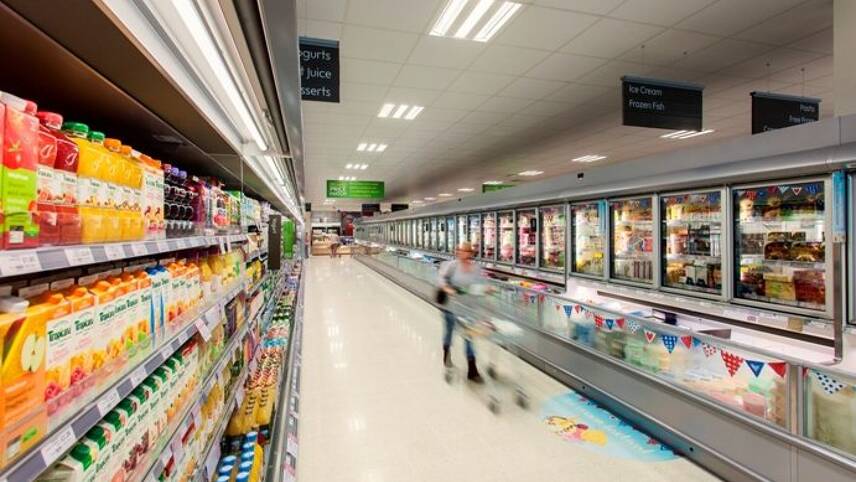Register for free and continue reading
Join our growing army of changemakers and get unlimited access to our premium content

The system steers cold air directly back down fridge units to stop cold air from spilling out onto the aisles
The retailer will install new fridge shelf-edge strips across its 353 UK stores by the end of 2019, in a bid to slash refrigeration-based energy consumption.
The technology, developed by Wirth Research, is based on devices used in Formula One racing cars. These use the principles of aerodynamics to guide cold air across an application more efficiently.
Called the Ecoblade, each system consists of two recyclable polycarbonate blades, which slot onto the front of fridge shelves and minimise the amount of cold air which ‘leaks’ out into shop aisles.
Overall, Waitrose estimates that the technology will save the energy equivalent of boiling 1.6 billion cups of tea every year. It has the added benefit of keeping aisles warm for customers, without the use of money or resources needed to manufacture and install fridge doors.
“To deliver an energy saving of such significance through changing our shelf edging is fantastic, and another example of how we continue to find innovative ways to achieve our goal to make our shops more sustainable,” Waitrose & Partners’ head of corporate responsibility Tor Harris said.
“We know there is always more to do, but applying this design means we’re motoring forward in our efforts to reduce our impact on the environment.”
The first of the new fridge-edge strips will be installed in March, but Waitrose & Partners has not disclosed how many stores will be included in the initial roll-out.
Stopping emissions cold
Waitrose & Partners joins the likes of Sainsbury’s and Asda in investing in Formula-One-inspired fridge technologies. The latter estimates that installing Aerofoil Energy at 187 of its supermarkets will reduce its energy consumption for refrigeration by 17%.
Similarly, the installation of energy-efficient fridges – compounded by the installation of onsite solar arrays – has helped Aldi UK & Ireland to reduce its emissions per m2 of sales floor by 53%, against a 2012 baseline. The company recently announced that it had become a ‘net-zero’ business, after investing in a carbon offsetting programme late last year.
Aldi has notably invested £20m in natural refrigerants in the past three years, with the technology set be installed across all of its UK stores by the end of 2019. The transition will see Aldi’s potential refrigerant gas carbon emissions cut by 99%.
Rival Tesco is also making strong progress in this field, having recently announced plans to install low GWP refrigerants across 1,200 UK stores. The firm claims focusing on refrigerant-based emissions could reduce its carbon footprint by 40% – well above the 26.5% reduction it is targeting against a 2006 baseline.
Sarah George


Fitting doors to the fridges would be a good start instead of trying to refrigerate the entire store then heating it back up again.
If Co-Op can do it, Lidl, Aldi, even Tesco Metro then every supermarket chain in the country should be able to.
Don’t need F1 tech just plain common sense